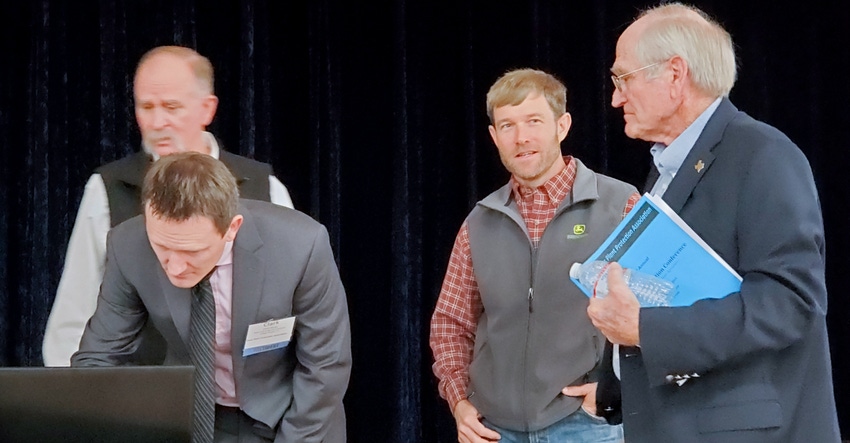
Happy New Year! I hope your holiday was filled with great conversation, delicious food and some quiet moments. I love the beginning of a new year. There's something invigorating about starting over. Nobody knows that better than farmers. Each year is a new crop. A new season. A new opportunity.
Throughout the fall, I attended several meetings where the topic of artificial intelligence in agriculture was discussed. It's mind-boggling. Literally. At one meeting, autonomous semi-trucks were the topic. Can you imagine driving down the interstate and the 18-wheeler passing you doesn't have a driver? It's a possibility.
The theme at the 31st Texas Plant Protection Association Conference in December was "Artificial Intelligence's Impact on Texas Agriculture." One of the keynote speakers, Shannon Pickering with Blue River Technology, discussed plant identification technology. Blue River, purchased by John Deere, has "see and spray" technology that identifies plants with a computer vision system on the sprayer. Every plant in the field is assessed while at the same time the system determines whether the plant is friend or foe, crop or weed. Once identified, Pickering said, "we can very easily tell the machine when to turn the sprayer on and when to turn it off."
But then Pickering stopped. Looked at the crowd and said, "When I say 'easily,' that's oversimplified. There's a lot of complexity in the ability to spray a weed or a crop in a field when you're running 10 mph. It's mind-boggling when you think about the speed at which these processors run, when they're only looking 3-foot ahead and that computer determines whether it's a weed or not, and then turns on the valve at the right time, depending on boom height and speed of the tractor. All of that has to be figured in because we don't want to spray a 3-foot strip, we want to spray a 3-inch strip. So, there's a lot of complexity in what seems like a simple operation."
See, Smart machines make instant management decisions
hat last sentence made me think about farming. To the outside world, farming probably appears simple. We plant a seed, water it and harvest. Right? Those who don't farm may "very easily" feel the softness of a towel, taste a delicious meal, smell fresh vegetables lightly sautéed in garlic butter and see the smooth leather on their boots. But do they understand the complexity of it? Probably no more than I understood see and spray until Pickering began to explain. And to really "get it" I'm going to have to hear it more than once. But it's a starting point. Maybe the challenge in 2020, is to give those outside of ag a starting point and begin to peel back the layers of simplicity to reveal our industry's complexity. They need to know. But it's up to us to tell. It's 2020. Let's start peeling.
About the Author(s)
You May Also Like






